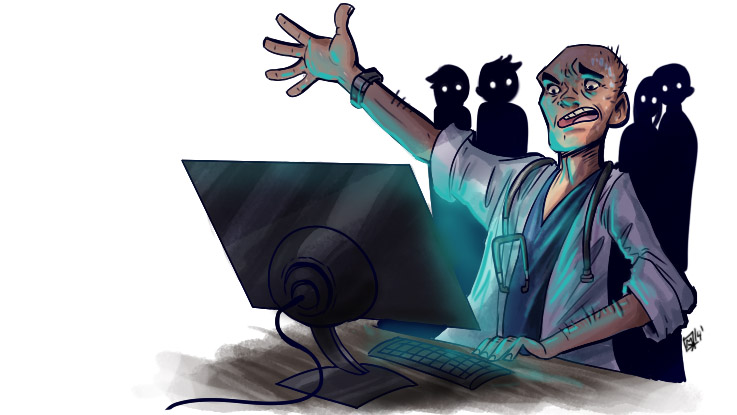Information Sharing in the Healthcare World
by Kim Persky | published Oct. 24th, 2014
Given that we have an entire college dedicated to it, RIT knows a thing or two about health sciences and technology. Our graduate program in Health Systems Administrations looks at the discrepancy between the rise of technology in health care and laws in place—or lack thereof—for that technology. In 2014, rarely will we see doctors come into the examining room with an actual physical file containing the records from our very first booster shots. The majority of these have been converted to electronic files for the sake of saving time, trees and money. The problem is that since there are so many new software types, file sharing between doctors is not always simple. A recent New York Times article describes the many counterproductive results of the switch to electronic records. As most health care providers have electronic records software, less than 15 percent of hospitals can successfully exchange this pertinent information. Doctors and office assistants still fax a significant portion of patient information, a tedious task that is one of the main reasons for the conversion to e-records.
Two major players in this software competition are Epic and the Cerner Corportation. According to Epic’s website, patients can take more control of their health care by using the software MyChart to schedule appointments, review their history and get test results. It is strange to think of a MyCourses-like website to find out serious test results, adding to the already dehumanizing process of the the switch to making medicine more technologically advanced. Cerner offers similar technology to patients, and these companies are competing for cost-effectiveness to health care providers. Cost-effectiveness has been a top priority since the 2009 incentive for hospitals to use electronic health care systems wisely in order to qualify for more Medicare and Medicaid support. These are known as “Meaningful Use” incentives. In a study done by Modern Healthcare on Meaningful Use, the report and analysis identified Epic and Cerner as the top contenders out of other smaller healthcare electronic systems in regards to Medicare incentive earnings.
In the future, it will be interesting to see how the interconnectivity of systems will play out as we progress. As of now, this sharing between systems comes at astronomical costs to healthcare providers. More importantly, the technological advancement of health record sharing will affect all of us, whether we are patients, employees or programmers of these systems.



